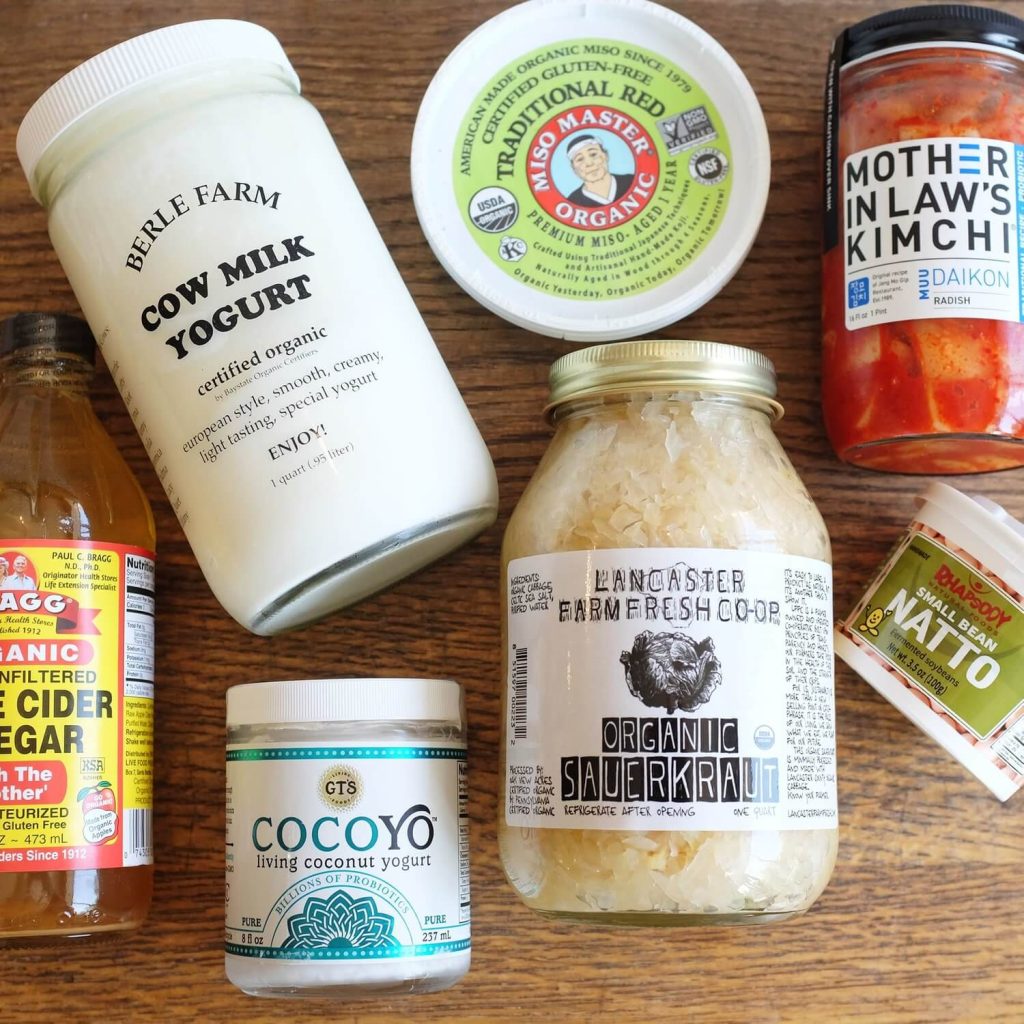The Benefits of Fermented Foods
If you’re interested in improving your diet and getting more of the nutrients you need, you may have heard about the benefits of fermented foods. But you might be wondering what they are, how they are made, and how you can incorporate them into your diet.
Table of contents
What are Fermented and How are They Made?
Fermented foods have long been involved with health benefits, particularly for gi health. In recent years, their fame has elevated, especially in the Western world. However, most of them have not been tested in randomised controlled trials.
Fermented foods contain live micro body that can provide a variety of health benefits. These beneficial bacteria can promote healthy digestion and improve the activity of the immune system. They can also reduce the risk of sore related diseases.

Some common fermented foods include kefir, kombucha. While all are nutritious, not all of them offer health benefits in the same way.The beneficial bacteria in ferment foods are believed to be able to quench harmful bacteria and help maintain a healthy aliment tract. They are also known to produce germ fighting proteins.
Fermented foods are an important part of diet in many cultures. Historically, they have been made in small, artisanal productions. Today, however, food companies are come forward to the growing interest in fermented foods.
Benefits of fermented foods can have a wide range of flavor, as well as an array of health benefits. There are numerous books and online resources available to help you make these foods at home.In addition to providing a variety of health benefits, these foods can be a great way to add flavor to your meals.
The Health Benefits of Fermented Foods
There are wide variety of health benefits of fermented foods. They can help with weight loss, digestion, and even immune system health. The process of fermentation involves bacteria and yeast, which break down carbohydrates and sugars into beneficial compounds, like lactic acid. These mixture are also known for their anti microbial and anti oxidant properties.
It is thought that some of the benefits of fermented foods are due to their ability to boost immunity and reduce inflammation. By the diversity of the gut microbiome, they can help restore the balance of good bacteria in the digestive tract. This can prevent health conditions related to blood sugar.

In addition, some studies have found that certain bacteria may jump start the production of serotonin, which can improve mood and increase well being. Studies are also investigating whether lactic acid may help protect against neurodegenerative diseases.
The process of fermentation can also help to break down plaque on teeth. Acids produced during the process can help break tartar, which can reduce gum disease.
Some studies have shown that fermented foods may lower cholesterol and ward off some types of cancer. Additionally, the bacterial cultures involved in fermentation can help improve the overall nutrient content of food.
A number of studies have shown that the microbiome plays a role in the development of several different diseases. However, the exact function remains unclear.
Ways to Incorporate Fermented Foods into Your Diet
There are plenty of ways to incorporate fermented foods into your diet. These foods are easy to prepare and are available in most places. They contain probiotics, a type of bacteria that plays an important role in digestion. However, they may not be a good idea for everyone.
Some people have gastrointestinal problems when consuming fermented foods. If this is you, you should start with small amounts before increasing them. This may also help your taste buds adjust. Also, adding too many fermented foods at once can cause loose stools.

It’s best to avoid sugar and artificial additives in fermented foods. These element can interfere with the activity of probiotics. Avoiding these products is especially important for those with sensitive digestive systems.
Fermented foods are a great way to promote digestive health and improve the way that your body absorbs nutrients. Adding fermented foods to your diet can help ease the symptoms of grumpy bowel syndrome, diarrhea, and obstipation. In addition, fermented foods are a good source of vit B12, calcium, and potassium.
Some of the most popular fermented foods include yogurt, kefir, sauerkraut, and beer. They can be found in natural food stores and health food stores. But you can also make your own at home.
Yogurt is an easy way to incorporate fermented foods into your diet. When buying yogurt, look for live active cultures. You can use it to make fat burning smoothies or substitute it for dairy.
Potential Risks of Fermented Foods
Humans have been eating fermented foods for generations, and they are recognized to have several health advantages. Consuming fermented foods can have potential dangers, especially if they are not prepared properly.
The Risks
| Potential Risk | Explanation |
| Contamination | Fermented foods can be contaminated with harmful bacteria if not made properly. |
| Histamine intolerance | Fermented foods contain high levels of histamine, which can cause allergic-like symptoms in some people. |
| Excessive salt intake | Salt is often used in the fermentation process, which can lead to excessive salt intake. |
| Alcohol content | Some fermented foods can contain small amounts of alcohol, which may be a concern for some people. |
Contamination: Both beneficial and harmful bacteria can flourish in an environment made favorable by fermentation. Food poisoning can result from hazardous bacteria growing in fermented foods if they are not prepared properly. Listeria, Salmonella, and E. coli are the most typical pollutants.
Histamine intolerance: Histamine, a substance that naturally appears in many foods, is present in high concentrations in fermented meals. Histamine sensitivity can cause also allergic-like symptoms in certain people, including headaches, rashes, and digestive problems.
Excessive salt intake: To foster the growth of beneficial bacteria during the fermentation process, salt is frequently employed. Yet, consuming too much salt can result in high blood pressure and other health issues.
Alcohol content: Certain foods that have undergone fermentation, such kefir and kombucha, may have trace levels of alcohol. Even while these levels are typically low, folks who are sensitive to alcohol or who don’t drink at all may find them to be a cause for concern.
How to Prevent the Risks
The good news is that you can take a number of precautions to reduce any hazards associated with eating fermented foods. Here are a few examples:
Use proper fermentation techniques: To prevent the growth of dangerous bacteria, it is crucial to use the correct fermentation methods. Use clean utensils and containers, ferment food at the right temperature for the right length of time, and also utilize clean containers and utensils.

Store fermented foods properly: Foods that have undergone fermentation should be kept in the refrigerator to halt the process and avoid spoiling. To avoid infection, always store fermented foods in airtight containers.
Limit your intake of histamine-rich foods: You may want to restrict your consumption of fermented foods as well as other histamine-rich foods like aged cheeses, cured meats, and wine if you are sensitive to histamine.
Monitor your salt intake: Although some salt is required for fermentation, consuming too much salt might be detrimental. Be aware of how much salt you are taking in, and try to restrict your intake of fermented foods high in salt, including kimchi and sauerkraut.
Final Thought
In conclusion, it has been established that fermented foods have a variety of health advantages, such as enhancing immune function, encouraging healthy digestion, and lowering the risk of diseases associated with inflammation.
The hazards of contamination, histamine sensitivity, high salt consumption, and alcohol concentration should all be considered, though. It is essential to utilize proper fermentation methods, store fermented foods properly, restrict the consumption of histamine-rich meals, and keep an eye on salt intake to reduce these dangers.
Fermented foods can be a also delightful and nutrient-rich supplement to a healthy diet with care and careful preparation.
You can click here to take a look at the fermentation stages.
May be like this: Does Grapefruit Lower Blood Pressure?
FAQ
· A soup or beverage made with flour, veggies, and yogurt is called tarhana.
· yogurt beverage called ayran
· A fermented beverage called boza is created from bulgur, sugar, and yeast.
· Pickles: A variety of vegetables, including cucumbers and peppers, are fermented in vinegar or brine and then pickled.
Fermented food is, in fact, Greek yogurt. It has a thicker, creamier texture as a result of filtering the liquid whey from conventional yogurt.
Although coffee is produced by roasting and grinding coffee beans rather than by fermentation, it is not commonly regarded as a fermented food. Nonetheless, fermenting coffee beans may be used to create some speciality coffee drinks.
Depending on the technique of cooking, rice may be a fermented food. For instance, fermented rice is used to make some traditional Japanese foods like sake and miso soup.
Apples, which are used to make hard cider, grapes, which are used to make wine, and other berries are some examples of fruits that are frequently fermented (used to make fruit wines or meads). Fruits aren’t fermented as frequently as grains or veggies, though.





